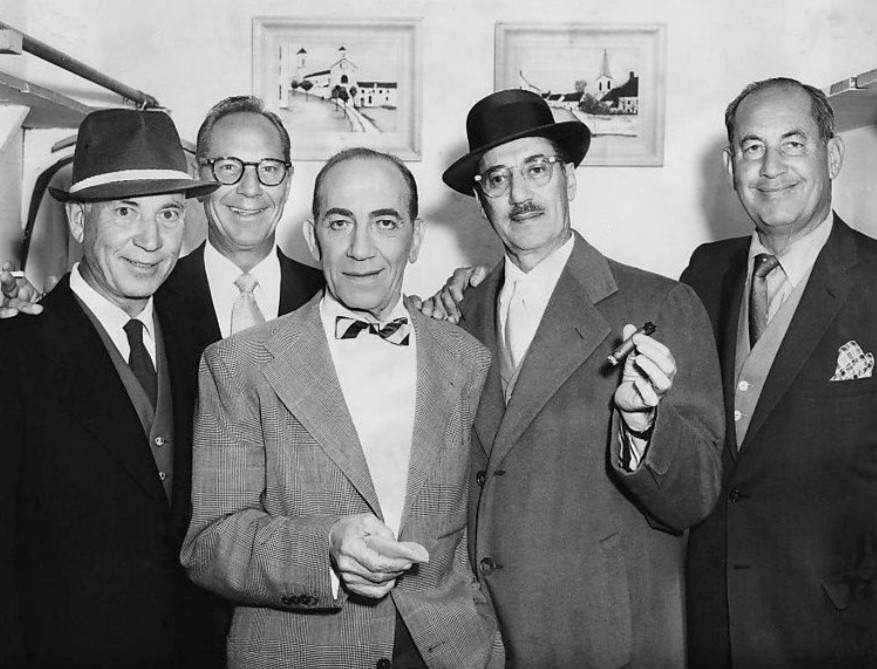
From left: Harpo, Zeppo, Chico, Groucho, and Gummo Marx, 1957.
• Looking back at the life and career of Zaha Hadid, world-renowned architect. (The New Yorker)
• A secret language of gay men that nearly disappeared: “Polari is a language of, in linguistic professor Paul Baker’s words, ‘fast put-downs, ironic self-parody and theatrical exaggeration.’ Its vocabulary is derived from a mishmash of Italian, Romani, Yiddish, Cockney rhyming slang, backslang—as in riah to mean ‘hair’—and cant, a language used by 18th-century traveling performers, criminals, and carnival workers. Many of the words are sexual, anatomical, or euphemisms for police.” (Atlas Obscura)
• Making sense of a mostly forgotten war: “In terms of percentages King Philip’s War is the most violent in our national history, and ignoring the per capita numbers, it was in its ferocity and almost gothic horror perhaps the most genuinely violent event in the whole American narrative. As historian Jill Lepore wrote in her masterful account of the event, King Philip’s War was a period when New England was ‘a landscape of ashes, of farms laid waste, of corpses without heads.’ We have never really recovered from the trauma.” (The Revealer)
• How much money did Shakespeare earn (and lose) on the stage? (Prospect)
• Presidential candidates often author books, but book authors rarely become presidential candidates: “Despite the fact that the Bureau of Labor Statistics estimated that there were 129,100 writers in the United States in 2012 (a number easily exceeding the populations of rodeo announcers and vintners), it is an extraordinary event when a writer becomes a candidate, and it is almost apocalyptic when one succeeds.” (The Hedgehog Review)
• Searching for meaning in the films of the Marx Brothers: “What the brothers did on stage and screen was far from adult and sometimes less adolescent than childish. Grown men in clownish costumes, they palavered and cavorted. Some of their humor was cruel, little of it victimless. If the Marx Brothers’ movies have a collective underlying message, it is, surely, that respectable life is a sham, a scam, not to put too fine a point on it, bullshit. Why did people enjoy this coarse cavalcade of uproarious disruption and denigration?” (Jewish Review of Books)